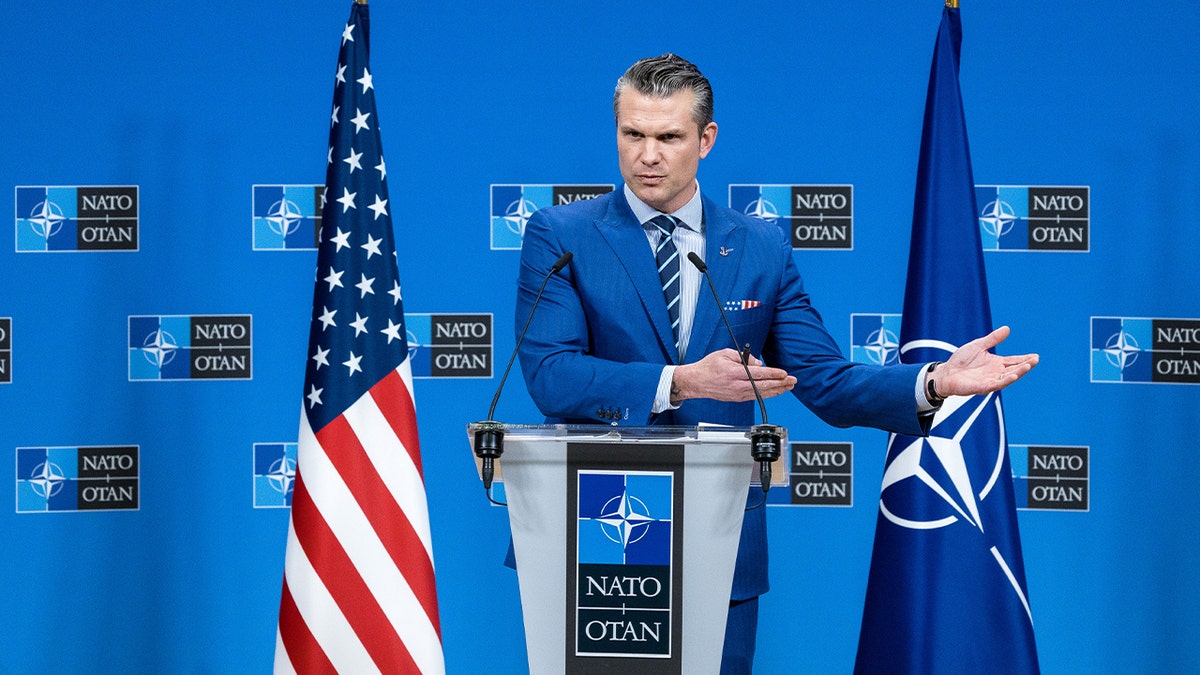Germany’s new conservative leader looks to ‘achieve independence’ from US
Germany’s chancellor-elect Friedrich Merz, leader of the center-right Christian Democratic Union party, said his “absolute priority” upon taking up the top job will be to secure Europe so that it can “achieve independence” from Washington.
“I would never have thought that I would have to say something like this in a TV show but, after Donald Trump’s remarks last week…it is clear that this government does not care much about the fate of Europe,” Friedrich Merz said on Sunday, according to multiple reports.
“My absolute priority will be to strengthen Europe as quickly as possible so that, step by step, we can really achieve independence from the USA,” Merz added.
TRUMP CELEBRATES CONSERVATIVE PARTY WIN IN GERMANY

BERLIN, GERMANY – FEBRUARY 24: Friedrich Merz, Chairman of the CDU (Christian Democratic Union) and chancellor candidate, is pictured during a press conference after the federal election on February 24, 2025 in Berlin, Germany. The Christian Democratic Union of Germany wins the election with around 28,5%. (Florian Gaertner/Photothek via Getty Images)
The comments by the incoming chancellor – who has been described as an ardent “Trans-Atlanticist” – are significant because they could signify a major shift from previous post-World War II relations between the U.S. and Europe.
In speaking about the upcoming NATO summit in June, Merz suggested the NATO alliance “in its current form” is in jeopardy and said that European nations may “have to establish an independent European defense capability much more quickly,” reported the BBC.
Mike Waltz, Trump’s national security adviser, reaffirmed the U.S.’s position on NATO last week and said, “We fully support our NATO allies. We fully support the Article 5 commitment.”
“But it’s time for our European allies to step up,” he said, noting the Trump administration’s repeated position in its demand that European countries increase their defense spending.
But concern has also mounted over whether the U.S. will pull troops stationed in Europe, particularly after Secretary of Defense Pete Hegseth said earlier this month that though he has no short-term plans to withdraw troops, NATO allies shouldn’t make the “assumption that America’s presence will last forever.”
ON THIRD ANNIVERSARY OF UKRAINE INVASION, EUROPEAN LEADERS SHOW SUPPORT, EXPRESS UNEASE

Secretary of Defence Pete Hegseth holds his closing press conference at the end of defense ministers’ meetings at NATO headquarters on Feb.13, 2025 in Brussels, Belgium. High on the agenda for the allies will be ascertaining how the U.S. intends to influence the trajectory of the war in Ukraine. (Omar Havana/Getty Images)
European leaders over the last few weeks have increasingly demanded a unified answer from the Trump administration on what its strategy is when it comes to Russia.
Concern escalated after Trump and Putin spoke last week, followed by a meeting between Secretary of State Marco Rubio and his Russian counterparts in Saudi Arabia, in which the administration’s push to re-establish diplomatic ties was revealed.
Trump’s negative comments towards Ukrainian President Zelenskyy have also prompted international ire and Washington’s position on securing a peace deal between Russia and Ukraine is expected to be a major topic of discussion this week as French President Emmanuel Macron and UK Prime Minister Keir Starmer travel to Washington to meet with Trump.
Merz, who appears to be attempting to once again make Germany a top player when it comes to geopolitics, on Monday emphasized his support for Ukraine.

TOPSHOT – France’s President Emmanuel Macron welcomes Britain’s Prime Minister Keir Starmer before an informal summit of European leaders to discuss the situation in Ukraine and European security at The Elysee Presidential Palace in Paris on February 17, 2025. European leaders were due to meet in Paris on February 17, 2025 to address Washington’s shock policy shift on the war in Ukraine, as Britain declared itself ready to dispatch peacekeeping troops to Ukraine. (Photo by LUDOVIC MARIN/AFP via Getty Images)
CLICK HERE TO GET THE FOX NEWS APP
“Three years of Russian war of aggression against [Ukraine]. Three years of war in Europe,” he highlighted in X. “For three years, we have been accompanied by the terrible images of destruction and war crimes. Europe remains firmly on the side of Ukraine.
“Now more than ever, we must put Ukraine in a position of strength. For a just peace, the attacked country must be part of peace negotiations,” Merz said.




